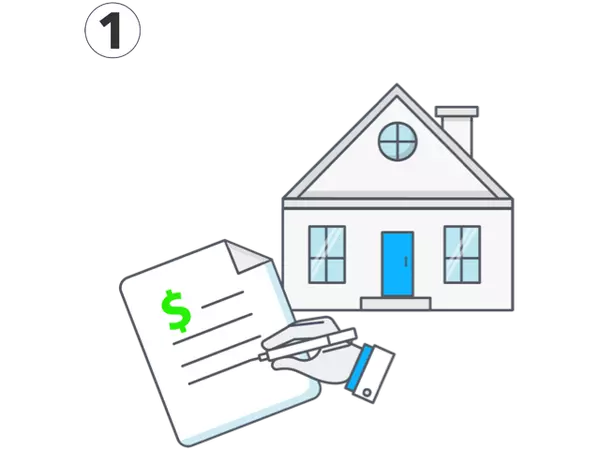ABOUT THE COMPANY
Reliant Home Mortgage LLC
The Reliant Home Mortgage LLC team is committed to providing clients with the highest quality financial services combined with competitive rates available in your area. The outstanding mortgage professionals here will work with you one-on-one to ensure that you get a financial solution that is tailored specifically to meet your financing needs. Whether you are purchasing your dream home, refinancing an outstanding loan, or consolidating debt, the highly experienced team of loan officers here can help you find the right loan program at a competitive rate, no matter what your needs are. The goal here at Reliant Home Mortgage LLC is to create lasting relationships with each and every client and to continue providing excellent service for many years to come. Unlike many of the larger nationwide mortgage companies that are out there, all your information will be kept secure and private. The Reliant Home Mortgage LLC name is trusted throughout the community. The experienced professionals here look forward to working with you.
PURCHASE LOANS
Learn About a Conventional Loan
A conventional loan is a type of mortgage that is not insured or guaranteed by the federal government, unlike government-backed loans such as FHA, VA, and USDA loans. This means that the lender assumes the risk of the loan and borrowers are required to meet certain eligibility criteria and financial requirements. If you're thinking of buying a home, check out the information below to see if a conventional loan may be a good option for you.
What is a Conventional Loan?
A conventional loan is a mortgage that is originated and funded by private lenders such as banks, credit unions, and mortgage companies. It is a type of loan that is not insured or guaranteed by the government. In other words, the lender assumes the risk of the loan instead of the government. A conventional loan can be used to purchase or refinance a home or investment property. It is important to know that there are two types of conventional loans: conforming and non-conforming loans.
Who is Eligible for a Conventional Loan?
To be eligible for a conventional loan, you will need to meet certain criteria such as having good credit, a stable income, and a low debt-to-income ratio. The exact requirements vary and depend on the type of conventional loan you are applying for. Typically, borrowers will need at least a credit score of at least 620, although it may require a higher score. You will also need to provide proof of income, which can include pay stubs, W-2s, and tax returns.
What are the Benefits of a Conventional Loan?
One of the main benefits of a conventional loan is that it allows you to borrow more money than government-backed loans. This is because there are no limits on the loan amount, unlike FHA loans, which have maximum loan limits based on the area you live in. Another benefit is that conventional loans usually have lower interest rates than government-backed loans, which can save you thousands of dollars over the life of the loan. Mortgage insurance is not mandatory with conventional loans if you put down at least 20% of the purchase price of the home, saving you hundreds of dollars in monthly mortgage payments.
What are the different types of Conventional Loans?
The most common type of conventional loan is a fixed-rate mortgage, which offers stable monthly payments over a set interest rate for the life of the loan. Another popular option is an adjustable-rate mortgage, which offers lower initial interest rates that can adjust up or down over time. Many borrowers also choose to take advantage of jumbo loans, which are designed for higher-priced homes that exceed the conforming loan limits of a traditional mortgage.
Learn About an FHA Loan
Learn About VA Loans
Learn About a USDA Loan
Learn About Down Payment Assistance (DPA)
What is a Self-Employed Loan?
What is a 2-1 Buydown Loan?
What is an FHA 203k Loan?
What is a Jumbo Loan?
What is a Non-QM Loan?
REFINANCE
What is a HELOC?
A HELOC, or a home equity line of credit, is a revolving line of credit that utilizes your home equity as collateral. This credit line is typically available for a period of up to 10 years. HELOCs are useful for homeowners who need to access funds for major expenses, such as home renovations, education, or medical bills. The limit on a HELOC loan is typically determined by the equity of your home and your creditworthiness.
Who is eligible for a HELOC?
To qualify for a HELOC, you must be a homeowner who has built up equity in your property. Equity is the difference between the value of your house and the amount of money you owe on your mortgage. In addition, you must have a stable source of income and a good credit score to qualify for a HELOC.
What are the benefits of a HELOC?
One of the biggest advantages of a HELOC is the flexibility that it offers as a loan product. HELOCs give borrowers the ability to access cash in a revolving line of credit, which means that the funds can be used and repaid as needed. This provides an ongoing source of funds that can be helpful for unpredictable expenses. Other benefits of HELOCs include lower interest rates than credit cards or personal loans, the ability to borrow large sums of money over time, potential tax deductions, and access to funds without selling your home.
What are the requirements for a HELOC?
The requirements for a HELOC are similar to getting other types of mortgages. The lender will typically review your credit score, income, and the equity in your home. Some common requirements for a HELOC include:
- A credit score of at least 620
- A debt-to-income ratio of less than 43%
- Appraisal of the property
- A loan-to-value ratio of less than 80%
- Proof of income
What is a Cash Out Refinance?
What is a Reverse Mortgage?
What does it mean to Refinance?
ADDITIONAL PROGRAMS
Unlock Investment Potential with DSCR Loans
The dream of homeownership is a timeless aspiration, but the path to securing that dream continues to evolve with complex financial products. For real estate investors, entrepreneurs, and high-net-worth individuals, one powerful tool is the Debt-Service Coverage Ratio (DSCR) loan. This financial solution enables borrowers to grow their property portfolios, enter the realm of real estate acquisitions, and maximize their investment potential.
This comprehensive guide will demystify DSCR loans, ensuring you can leverage them effectively to achieve your property investment goals.
What is a DSCR Loan?
A Debt Service Coverage Ratio (DSCR) loan is specifically designed for real estate investors and allows borrowers to qualify based on the rental income potential of a property rather than their personal or business income. This makes it an attractive financing option for those seeking to expand their property portfolios.
Key Features of DSCR Loans
- Income-Based Qualification: Borrowers qualify using the monthly rental income compared to the total mortgage payments to calculate the DSCR ratio, rather than relying on personal or business income.
- LLC-Friendly: DSCR loans can close in the name of an LLC, making them ideal for those growing their property portfolios under a business entity.
- Property Type Flexibility: Available for various property types, including those with long-term leases, short-term leases, or even no lease agreements.
- Down Payment Requirements: Typically requires at least 20% down, depending on the lender and property type.
- Portfolio Growth: Investors can finance up to 20 properties using DSCR loans.
- Investment-Focused: Exclusively available for income-generating investment properties, not primary residences.
Loan Uses
- Property Purchases
- Rate/Term Refinances
- Cash-Out Refinances
How Does DSCR Work?
At its core, a DSCR loan evaluates a property’s ability to generate sufficient rental income to cover its debt obligations. DSCR is the ratio of annual Net Operating Income (NOI) to the total Debt Service for a property:
- Net Operating Income (NOI): Represents the property’s profitability before financing costs or taxes. It’s a key figure that reflects the potential income of an investment property.
- Debt Service: Includes all required payments—principal, interest, lease payments, and sinking-fund contributions—due within a year.
By comparing NOI to debt service, lenders assess whether the property can sustain its debt obligations, directly influencing loan terms and interest rates.
Who is a DSCR Loan Ideal For?
DSCR loans are tailored to meet the needs of specific borrowers:
- Real Estate Investors and Developers
Seasoned investors leverage DSCR loans to acquire and develop income-generating properties, using the rental income to scale their portfolios effectively.
- Business Owners and Entrepreneurs
Self-employed individuals, often challenged by traditional mortgage requirements, find DSCR loans appealing because they prioritize the property’s income potential over the borrower’s fluctuating personal income.
- First-Time Investors
Even first-time investors can access DSCR loans, providing an entry point to the real estate market with minimal income documentation requirements.
Benefits and Considerations of DSCR Loans
DSCR loans offer significant advantages for real estate investors. They simplify the qualification process by focusing on a property’s rental income rather than the borrower’s personal or business income. This flexibility extends to financing options for various property types, including those with long-term leases, short-term leases, or even no lease agreements. Additionally, DSCR loans enable borrowers to purchase new investment properties, refinance existing ones, or access equity through cash-out refinances. Investors also benefit from the ability to close loans under their LLC’s name, providing both flexibility and added protection.
However, DSCR loans come with certain considerations. Borrowers typically need to provide a down payment of at least 20%, and these loans are not available for primary residences. The main documentation needed is proof of downpayment and reserves in a liquid account, source of any recent large deposits, decent credit history, and confirming they are current on any mortgages they pay. These loans also need an appraisal with a rent schedule and operating income statement to know what rent amount to use for the DSCR calculation. Borrowers can provide the current leases and/or get the rent schedule and operating income statement from the appraisal.
Despite these requirements, DSCR loans remain a powerful tool for those looking to grow their real estate portfolios.
Start Your Investment Journey Today
A DSCR loan provides a flexible, income-focused solution for real estate investors, allowing you to unlock new opportunities and grow your portfolio. Whether you're purchasing your first investment property or adding to an existing portfolio, DSCR loans offer a practical path to success.
Explore the possibilities of DSCR financing and take your real estate investments to the next level!
Understanding Construction Loans
Defining Land Loans: What Are They and Why Do They Matter?
Doctor Loans: The Mortgage Rx for Physicians
PROCESS OVERVIEW

GET PREAPPROVED FIRST TO KNOW YOUR BUDGET BEFORE LOOKING

CONNECT WITH GRIFFIN TO DISCUSS HOME NEEDS AND GOALS


